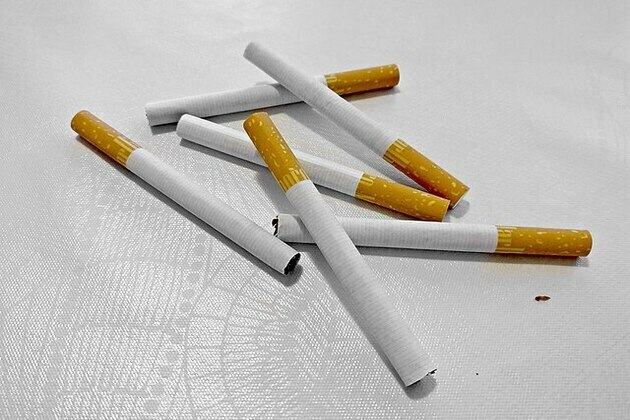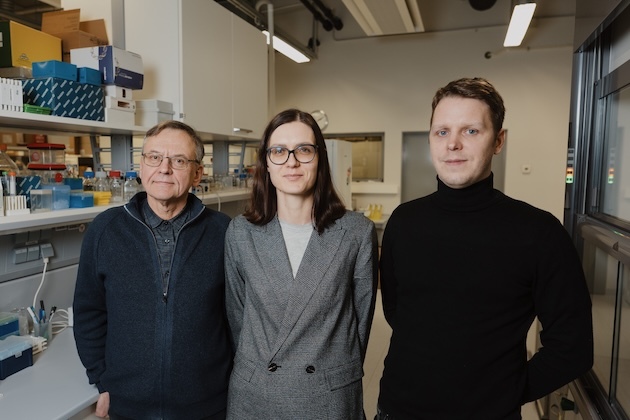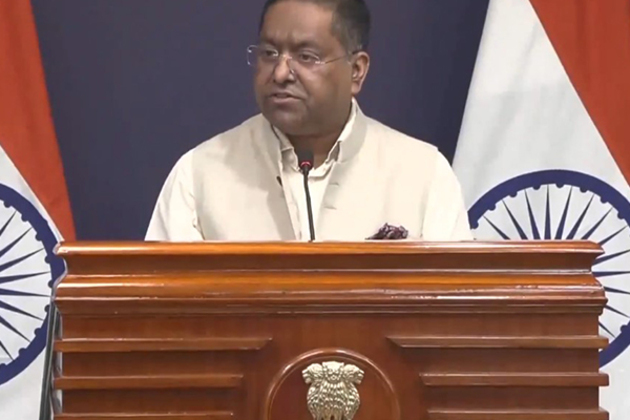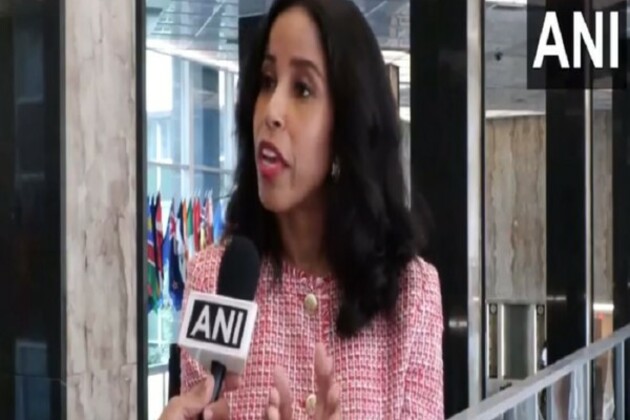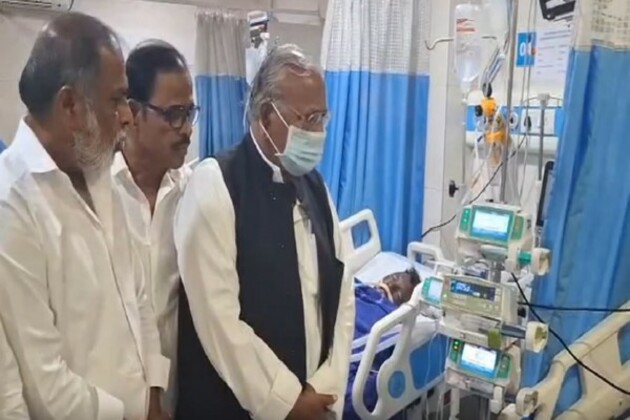Innovative 'keyhole' gardens help refugees improve their nutrition
The UN Refugee Agency
16 Oct 2020, 20:27 GMT+10
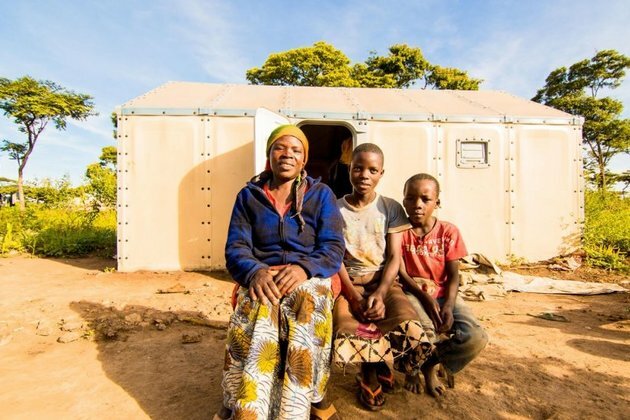
Venancia Nibitanga appears from behind her house with a bunch of green vegetables. She washes them carefully with clean water and cuts them into smaller pieces to cook.
Her three-year-old daughter watches intently.
"She is always by my side. I think one day she will be a great cook, just like her mother," she laughs.
Venancia, 35, is among 1,300 families in Tanzania's refugee camps who are involved in a vegetable production project aimed at diversifying diets and improving nutrition at home.
The project, jointly run by UNHCR, the UN Refugee Agency and the Danish Refugee Council, is helping families like Venancia's to establish special 'keyhole gardens' and provides them with vegetable seeds, tools and training on good farming practices.
Keyhole gardens are small circular raised beds, made with locally available low-cost materials. They have a keyhole-shaped indentation on one side to allow gardeners to add uncooked vegetable scraps, greywater, and manure into a composting basket that sits in the center of the bed. Compared to regular vegetable gardens, they require less labour - ideal for children elderly or sickly people - less water and no costly fertilizers or pesticides.
"They can also produce food all year round, even under harsh temperatures and support the production of at least five varieties of vegetables at a time," said Oyella Agnes, the Area Manager for the Danish Refugee Council in Tanzania. "This is key in supporting dietary diversity. It is also so prolific that its produce is more than enough to feed a family of eight persons."
A child laughs at Kigoma refugee camp in Tanzania. © UNHCR/Clemence Eliah A garden growing outside a Refugee Housing Unit at Kigoma refugee camp in western Tanzania. © UNHCR/Clemence Eliah A woman in Kigoma refugee camp in Tanzania works on a vegetable production project that aims to diversify diets and improve nutrition. © UNHCR/Christina John Burundian refugee Venancia Nibitanga, sits with her youngest daughter outside her home in Nduta refugee camp, Tanzania. © UNHCR/Christina John
Venancia, a single mother of seven, fled Burundi's political crisis four years ago, reaching Tanzania after a tortuous three-day journey. Before the project, her family was solely dependent on a monthly food ration distributed in the camps, hosting around 240,000 refugees, which she found barely enough.
"The children used to have a single meal a day, without vegetables," explains Venancia, who often worried that the ration would run out before the end of the month. "Now they have more to eat and it is nutritious too."
According to preliminary estimates by the UN World Food Programme 41.5 million people in the East and Horn of Africa currently face acute food insecurity because of the COVID-19 pandemic. Across the region, refugees are experiencing food ration cuts as high as 30 percent.
In Tanzania, the amount of food distributed to refugees in the past few months has gradually reduced to 72 per cent of the total food basket's monthly needs. The reduction is in part due to a cost adjustment to accommodate the increased distribution costs that came with the need to mitigate the risk of COVID-19 transmission.
The World Food Programme requires US$21 million in Tanzania to ensure that refugees can receive their full monthly rations from now until March 2021.
"Food is a basic human right. Programs like the keyhole garden provide refugees and other forcefully displaced populations with the opportunity to grow their own food and contribute to the restoration of human dignity: food, self-sufficiency and nutrition," said Antonio Canhandula, UNHCR Tanzania's Representative.
As she reaps the benefits of the project, Venancia wants others to benefit too.
"At first, I used to share my excess vegetables with neighbours who had none," she says. "Now, I am teaching them to establish their own keyhole gardens and produce their own food. It is easy and everyone can do it."
 Share
Share
 Tweet
Tweet
 Share
Share
 Flip
Flip
 Email
Email
Watch latest videos
Subscribe and Follow
Get a daily dose of Mexico Star news through our daily email, its complimentary and keeps you fully up to date with world and business news as well.
News RELEASES
Publish news of your business, community or sports group, personnel appointments, major event and more by submitting a news release to Mexico Star.
More InformationLifestyle
SectionNew French law targets smoking near schools, public spaces
PARIS, France: France is taking stronger steps to reduce smoking. A new health rule announced on Saturday will soon ban smoking in...
Methionine Restriction Could Extend Lifespan, Boost Health
VILNIUS, Lithuania – A growing body of research suggests that selectively restricting a single nutrient in our diet could have profound...
Federal judge blocks President Trump's asylum ban at the Southern border
Washington, DC [US], July 3, ANI: A federal judge on Wednesday blocked United States President Donald Trump's asylum ban at the Southern...
3 indians abducted from factory amid al-Qaeda linked terrorist attack; India urges Mali to secure their safe, swift release
New Delhi [India], July 3 (ANI): The Ministry of External Affairs (MEA) has expressed deep concern over the abduction of three Indian...
Quad focused on territorial integrity, sovereignty and rule of law, says US State Department's Mignon Houston
Washington, DC [USA], July 3 (ANI): The Quad Foreign Ministers' Meeting (QFIM) held in Washington placed strong emphasis on the importance...
Congress' Hanumanth Rao visits Sigachi Pharma Factory explosion site, meets survivors
Sangareddy (Telangana) [India], July 3 (ANI): Telangana's Senior Congress leader V. Hanumanth Rao visited the Sigachi Pharma Factory...
International
SectionTurkey, France battle wildfires amid early Europe heatwave
ISTANBUL/PARIS/BRUSSELS: As searing temperatures blanket much of Europe, wildfires are erupting and evacuation orders are being issued...
Venetians protest Bezos wedding with march through the town
VENICE, Italy: Over the weekend, hundreds of protesters marched through the narrow streets of Venice to voice their opposition to billionaire...
New French law targets smoking near schools, public spaces
PARIS, France: France is taking stronger steps to reduce smoking. A new health rule announced on Saturday will soon ban smoking in...
Trump hints at DOGE investigation of Musk subsidies
WASHINGTON, DC - U.S. President Donald Trump on Tuesday claimed Elon Musk's success has been built on government subsidies. Without...
Native leaders, activists oppose detention site on Florida wetlands
EVERGLADES, Florida: Over the weekend, a diverse coalition of environmental activists, Native American leaders, and residents gathered...
Beijing crowds cheer AI-powered robots over real soccer players
BEIJING, China: China's national soccer team may struggle to stir excitement, but its humanoid robots are drawing cheers — and not...

